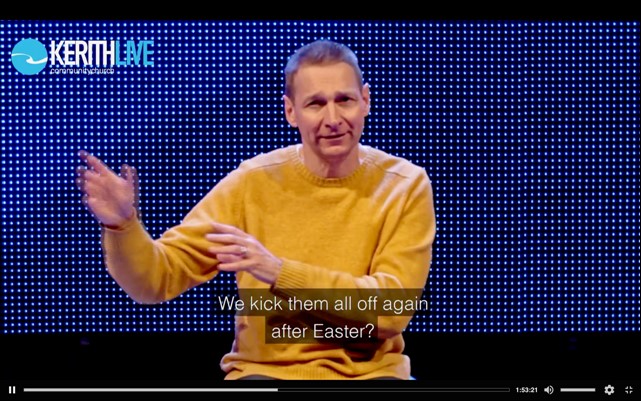What are closed captions and why are they important… more so now than ever!
Closed captions can pack a lot of benefits for all viewers, not just those who have difficulty hearing. In fact, according to a study by Ofcom, more than 80% of people who watch videos with closed captions turned on do not actually require them.
The rapid expansion of smartphone and tablet use has led more people to seek out videos with captions or subtitles so they can be watched from practically anywhere at any time. This is particularly useful in situations where you are unable to have the video audio on. For example, if you are watching a quick how-to video whilst in the shared breakout room at work, watching a webinar/pre-recorded Zoom whilst in the same room as a sleeping baby, or simply scrolling through Facebook when other work should be done, the chances are you don’t want everyone hearing!
In the past few weeks, and for the foreseeable future, closed captions have become more important due to the coronavirus outbreak. A good example of why this is the case is that whilst offices are closing their doors, most are now moving their meetings, webinars and interviews online – which is a great move by them! Closed captions are also convenient for those who are having to work remotely, where their temporary work environment doesn’t allow for video audio (e.g. noisy children, partners working in the same room and so on).
This weekend we were given the opportunity to provide closed captions for a church sermon for Kerith Community Church. Below are a couple of screenshots to give you an idea of how they look. Incorporating closed captions on their online sermon ensured everyone could still be involved, no matter where they were while watching the video, and whatever the extent of their hearing capabilities.
If you feel closed captions would benefit your videos or you’d like more information, please send an enquiry to office@mcgowantranscriptions.co.uk.
Why Closed Captions and not Subtitles?
Closed captions look very similar to the more familiar service of subtitles; however, they are designed for two different purposes. Subtitles provide a text alternative for the dialogue of video footage whilst closed captions, on the other hand, not only supplement for dialogue but other relevant parts of the soundtrack. Closed captions will describe background noises, phones ringing and other audio cues that need to be annotated in order for the reader to understand fully what they are watching.
Put simply, subtitles assume an audience are able to hear the audio but need the dialogue provided in text form as well, whereas closed captioning assumes the audience cannot hear the audio and therefore needs a text description of what they would otherwise be hearing. It’s a good idea to offer both options on your video to prevent discrimination.
Below are the screenshots from the sermon we worked on for Kerith Community Church. We have received such lovely feedback which really highlights the importance of including closed captions on your video.
From a member of the online congregation:
Dear all lovely people
I just want to give heartfelt thanks to all who made this morning’s service FULLY accessible to us all in Deaf Hope and outside. The subtitles were awesome – a dream come true for us all as we’ve been waiting for this for so long.
We are truly blessed by you all. Tears are streaming down my face at the moment!
Thank you, Thank you
Calum Field – Production:
Just wanted to thank you so much from us all for transcribing our Sunday meeting for us this morning. You’re an absolute star and it’s going to bless so many people in not only our immediate community, but also the wider reach of people who will tune in and watch. Last Sunday we had well over 1700 devices watching, which went up to over 2500 by the middle of the week – so many of those people will be so grateful.
Simon Benham, Pastor:
You have no idea the difference you are making, although hopefully the feedback from the leader of our deaf community may give a clue to it.
 GET A QUOTE
GET A QUOTE ORDER ONLINE
ORDER ONLINE




